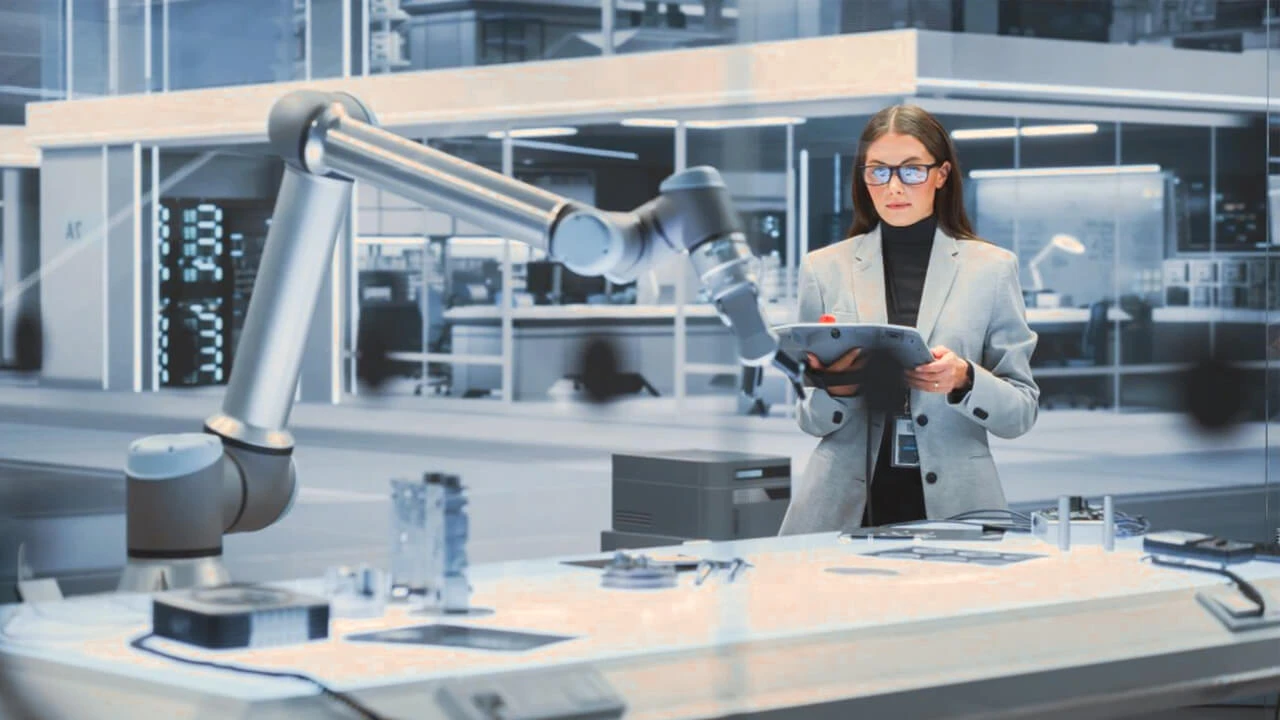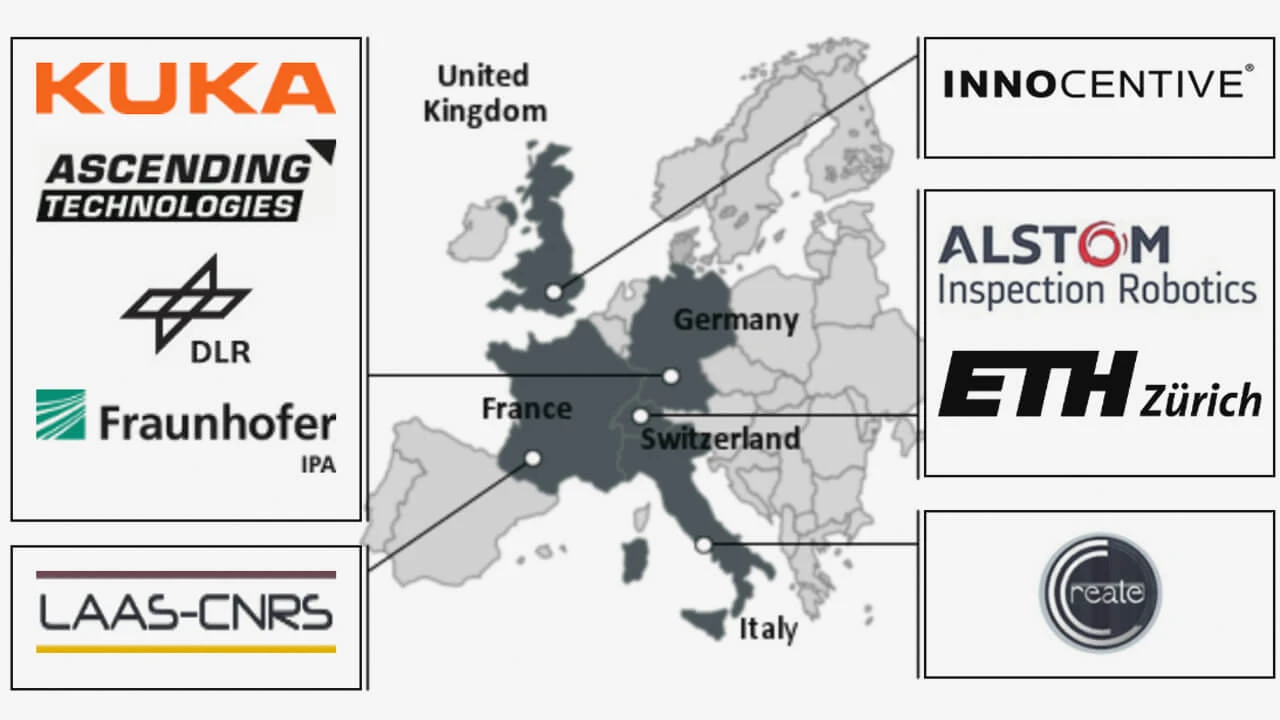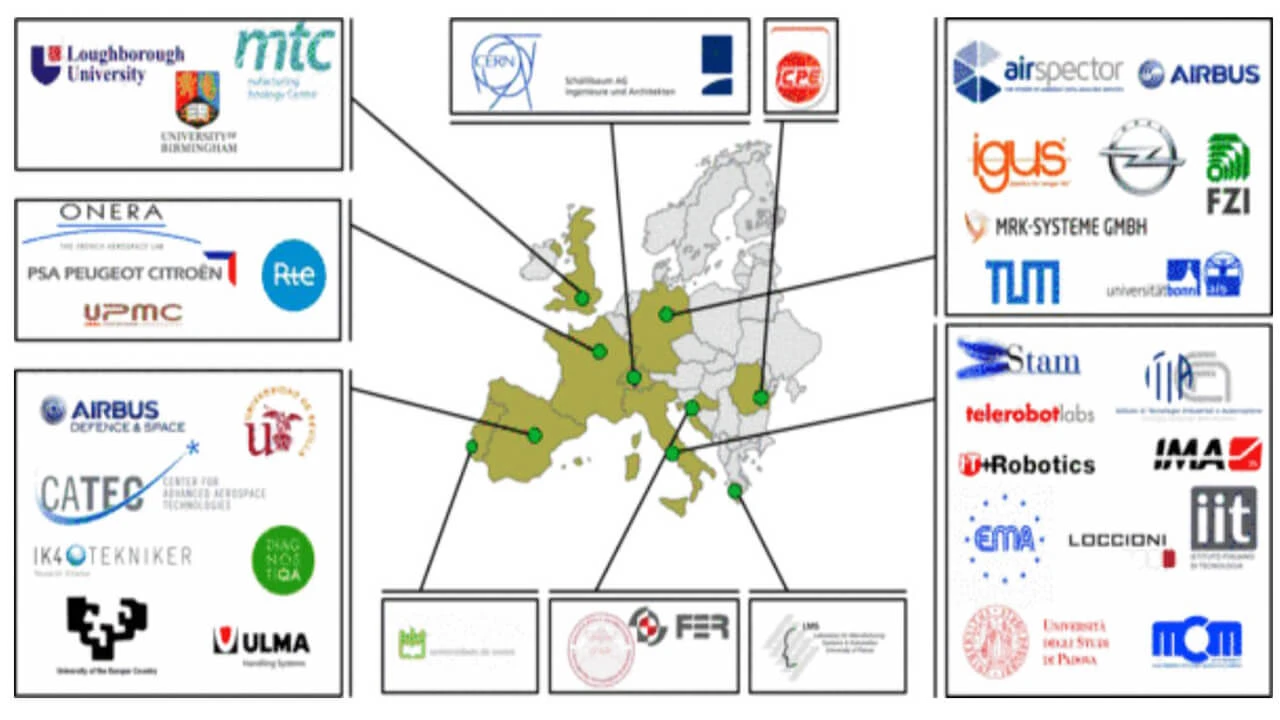
Motivation
The European robotics industry needs competitive solutions to attain and keep global leadership in robotics products and services. The European society will greatly benefit from this leadership position by making use of these robotics products and services that are aiming at improving their quality of life and work conditions. The adoption of robotics technology will help European manufacturing enterprises, in particular SMEs, to adapt to global competitive pressures. ICT suppliers such as robot manufacturers, system integrators and technology solution providers are important facilitators to improve the efficiency, adaptability and sustainability of manufacturing systems as well as their better integration within business processes in an increasingly globalised industrial context.
To boost robotics and manufacturing in Europe there is a need for a European perspective on the topics that need to be researched and developed. Both the Strategic Research Agenda (SRA) for robotics in Europe, published in July 2009 under the auspice of the European Technology Platform (EUROP), and the Factory of the Future multi-annual roadmap deliver this European perspective and are at the same time perfect examples of a successful collaboration among all the actors of the value chain in manufacturing and servicing, i.e. end users (SMEs/industry), system integrators (SMEs/industry), technology suppliers (industry/SMEs) and research experts (academia). During the development of the strategic research agendas of robotics and manufacturing, fertilisation across these groups led to a technology roadmap targeting at realising new product visions and applications scenarios by 2020. However, the implementation of these strategic research agendas and the realisation of the application scenarios and associated product visions require an awareness of the core RTD issues to be solved and a joint effort of academia and industry, including SMEs.
We strongly believe that the definition of competitions and making them visible as “Grand Challenges” will create the required awareness in the community at large. Furthermore, we know from past experience that competitive solutions are in the longer term created only in close collaboration of industry and academia. Resorting to experimentation on shared research infrastructures, while referring to jointly developed benchmarks, will boost the development of new solutions.

EuRoc Consortium
The EuRoC consortium consists of a total of 9 beneficiaries: 5 academic/research, 3 companies, and 1 SMEs, as detailed in the previous individual profiles, which also include information on the specific expertise and role covered by each beneficiary. The five academic/research beneficiaries (CREATE, CNRS, DLR, ETHZ, IPA) of the consortium have been chosen in a way that the three challenges of EuRoC are covered at a very high scientific level, while the three industrial beneficiaries (AIR, ASC, KUKA) guarantee the industrial relevance of the challenges in those relevant domains which are thought to cover the most promising technologies for potential end‐users and market‐driven finalization of robotics research. In addition, a beneficiary with a strong expertise on challenges (INNO) has been included in the consortium to streamline the processes, ensure the professional design and execution of the challenges and the comparability in between the three challenge scenarios.

Robotics in Casino Security and Fair Play
Robotics and AI technologies play a key role in improving security and fairness in online casinos. Advanced AI algorithms, often referred to as “robotic eyes,” actively monitor player behavior to detect fraudulent activity or unusual wagering patterns. These systems can analyze huge amounts of data in real time, identifying potential threats and anomalies that could compromise the integrity of the game. In this way, they ensure a safer and more transparent environment for players, strengthening trust in online casinos.
In addition to fraud detection, robotics also contribute to responsible gaming initiatives. AI-based tools can detect signs of problem gambling, monitoring users' betting habits and alerting operators when action is needed. This proactive approach helps prevent problems before they escalate, promoting safer gaming practices in both casino apps and mobile casinos.
In addition, AI-enhanced security protocols are increasingly being used to protect sensitive information, such as financial and personal data, from cyber attacks. These automated systems can detect and address potential breaches faster than human operators, reducing the risk of data theft and ensuring compliance with strict privacy regulations.







